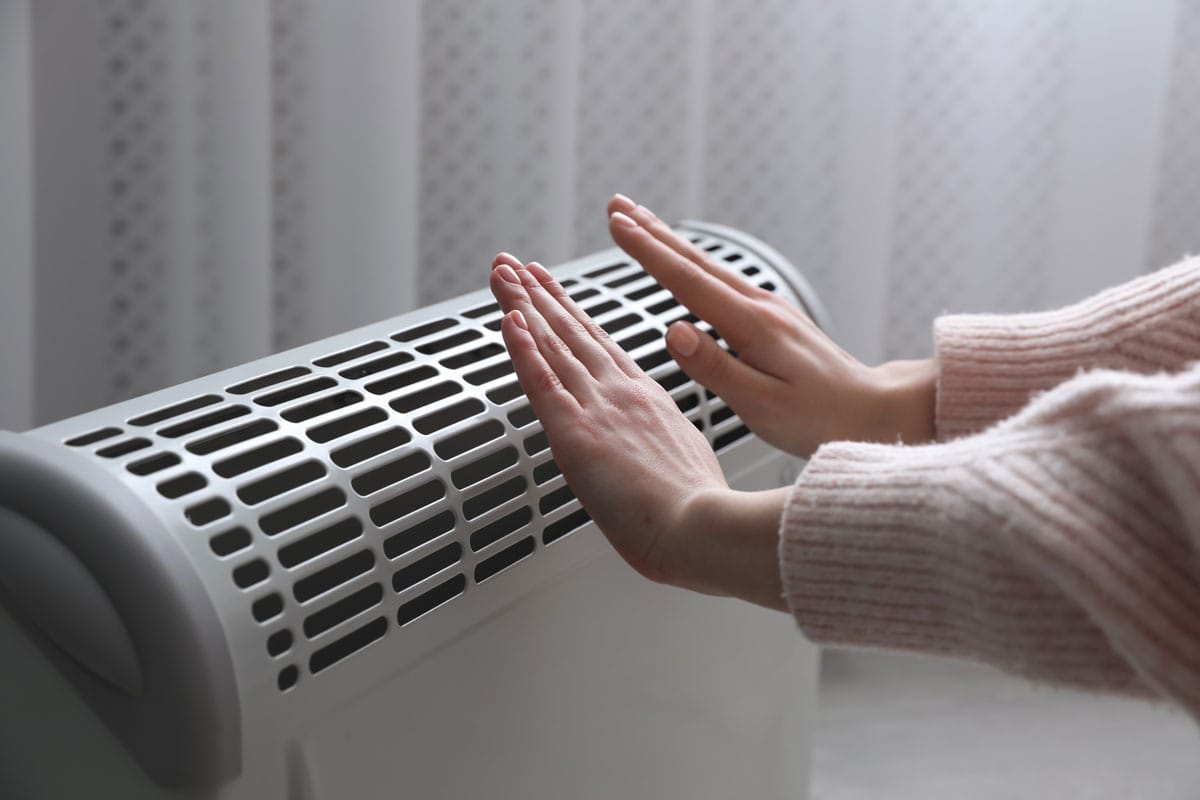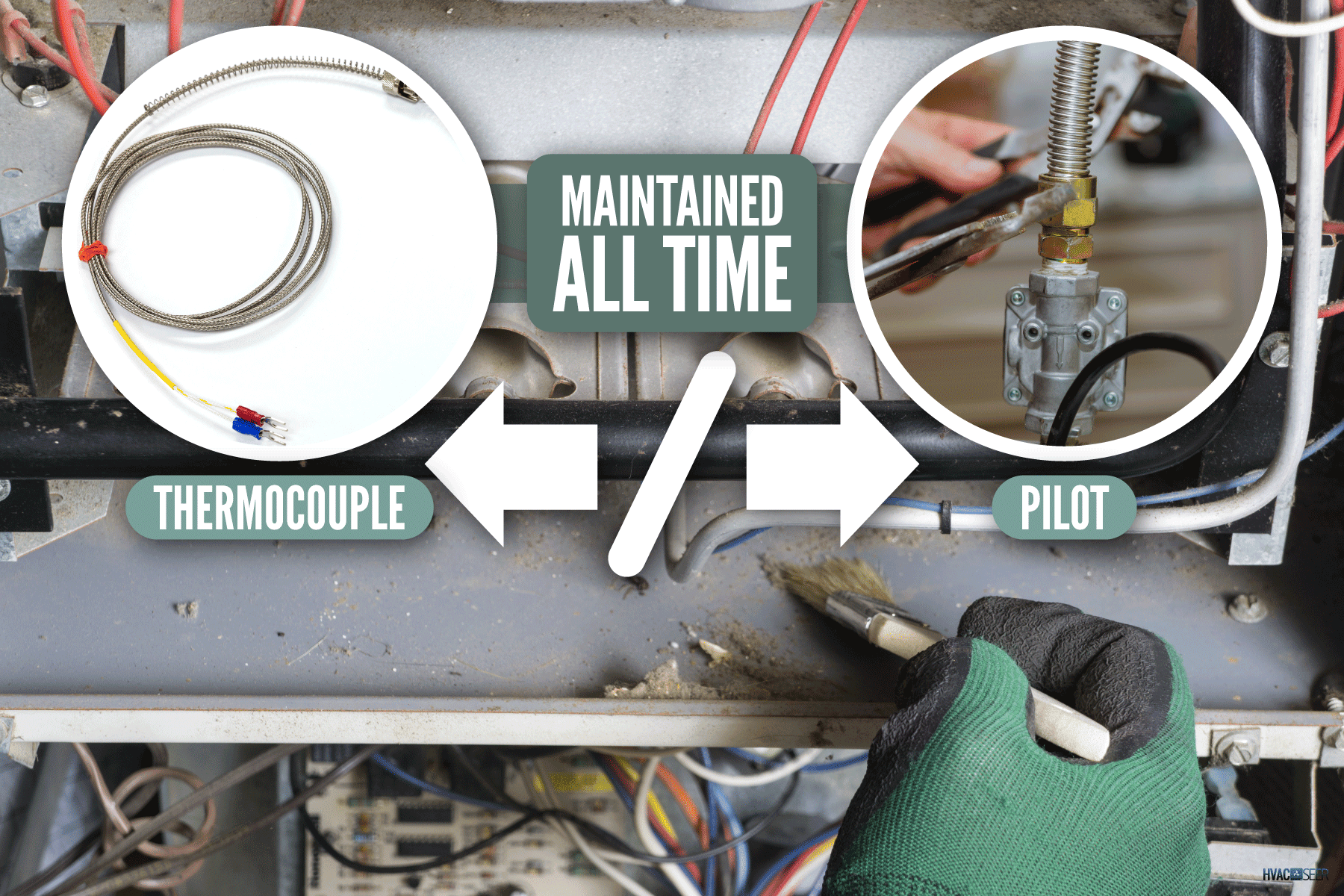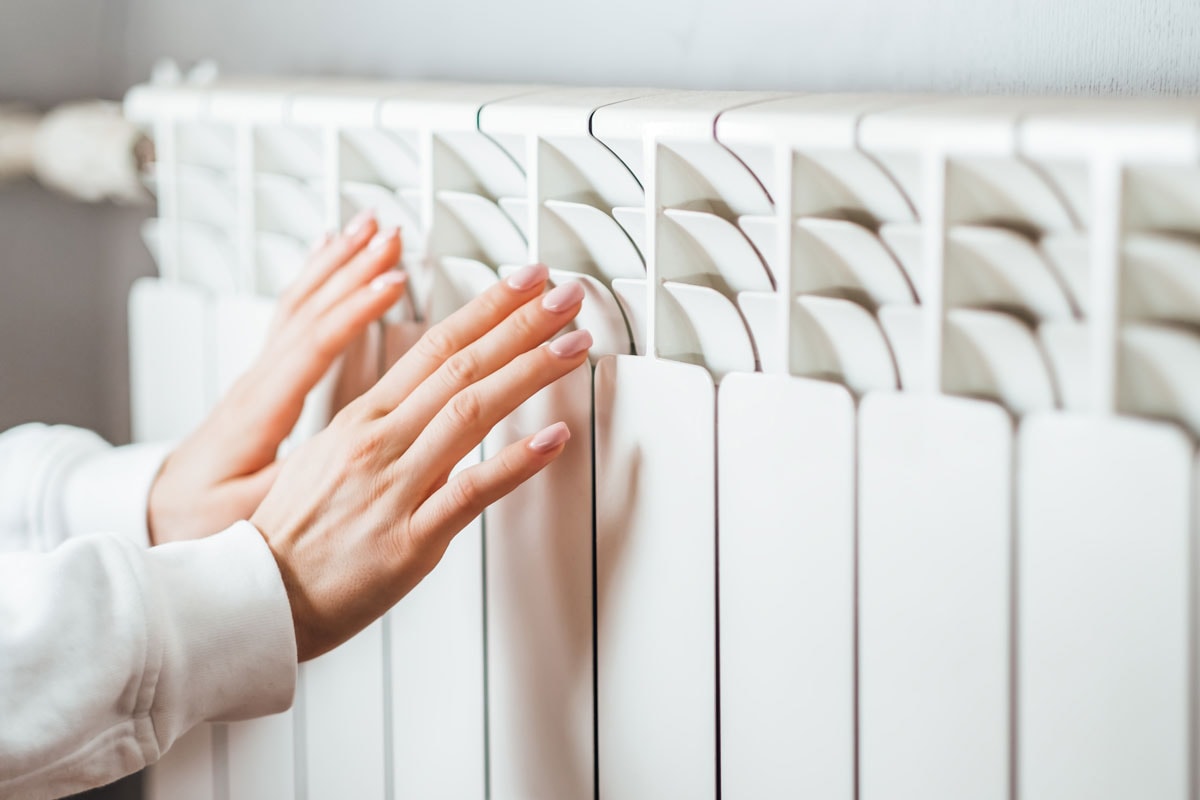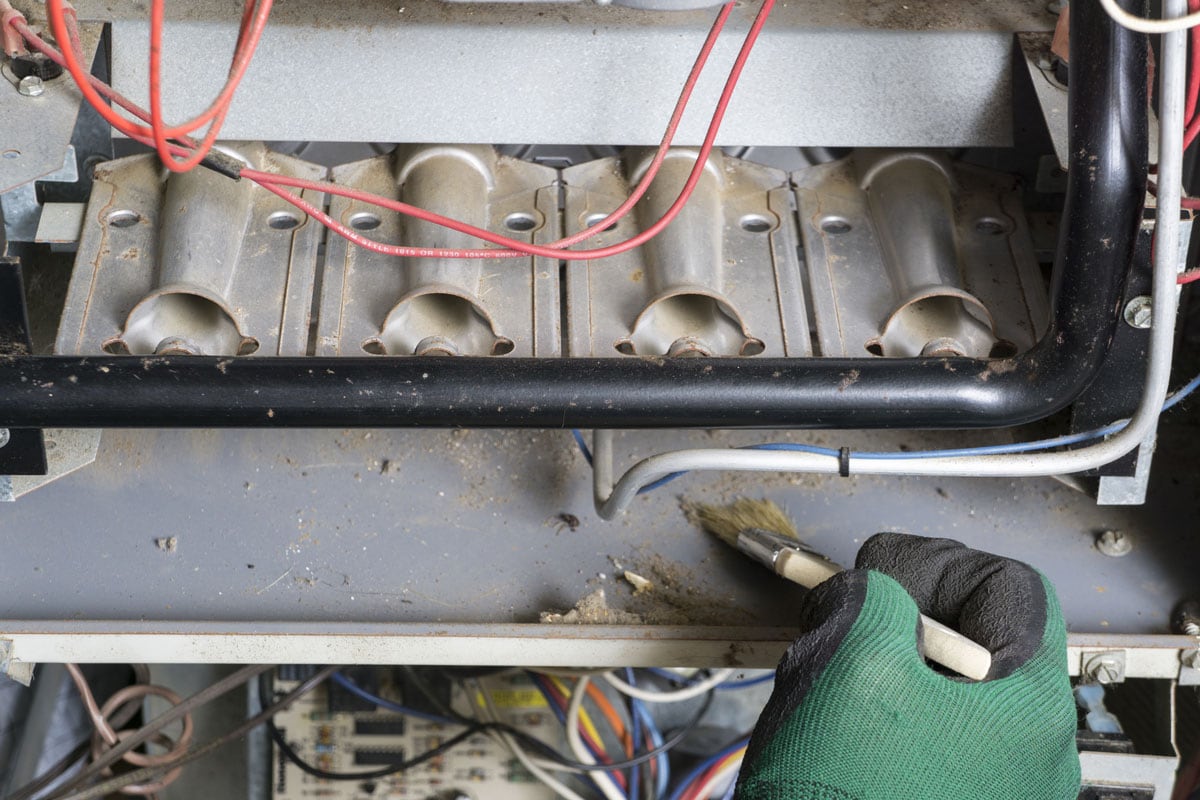If you want to know why your Rinnai heater keeps shutting off, you're on the right page. We've researched this particular concern and what you can do about it, and here's what we found out.
When your Rinnai heater keeps shutting off, you should check its gas supply, thermocouple, pilot, gas line, condensate drain line, and water leak sensor. The size of the heater can also be an issue.
Follow these steps to solve the problem:
- Turn on the gas valve or replace the propane tank to ensure an adequate gas supply.
- Adjust the thermocouple's distance from the pilot.
- Clean the dirt and debris from the pilot, gas line, and condensate drain line.
- Call a plumber to fix a leaking pipe.
- Adjust loose wiring on the water leak sensor.
- Replace defective parts or oversized heater.
Keep reading to learn more troubleshooting tips when you experience this problem with your Rinnai heater. Let's get started!
Why Does My Rinnai Heater Keep Shutting Down?

A heater that keeps turning off by itself can be a hassle, especially when you need it the most. Regarding home heating and water heaters, Rinnai is one of the most popular brands out there.
Their heaters are usually powered by natural gas or propane, which is very reliable when it comes to heating a room or water in a short time. It is more economical for those who already have gas service lines in their homes and offers a practical solution for those who are off-grid.
Rinnai's tagline for its heating appliances is "comfort you can count on." But even the best heaters out there can malfunction and will only be able to deliver their promise of keeping you warm and comfortable once you get them fixed.
Check out this Rinnai space heater on Amazon.
If there's a problem with your heater, you need to assess whether it's something you can handle before deciding to call in the pros. Sometimes, the manual only offers a little help, so you need to learn from HVAC experts and other users' experiences.
Here are the possible reasons why your Rinnai home heater keeps turning off. You should check each part below to determine if it has a problem, and we'll tell you the appropriate course of action for each situation.
Gas Supply
Your Rinnai gas heater won't function without gas. When the heater keeps turning off, the problem could be as simple as closing the gas valve. For those using a propane tank, you might have run out of propane.
Check that the gas valve is open to allow gas to pass through. You should also check or replace your propane tank as needed.
Thermocouple
The thermocouple in your heater measures and regulates its internal temperature. It is an integral component of a gas heater, so when its position is off, it can affect its performance and cause it to turn on and off.

The recommended distance between the thermocouple and the pilot should always be maintained. If there's a greater distance between them, the gas supply will be interrupted, causing the heater to shut off.
To fix this, turn off your heater and wait until it has cooled down completely. Locate the thermocouple on your heater and check if it has gotten far from the pilot.
If it has, carefully move it closer bit by bit. Then turn on your heater and see if it will now function properly. If it still shuts off, repeat the steps and move the thermocouple closer to the pilot.
Pilot
The pilot is always lit to ignite the gas that will run your heater. Over time, dirt and debris can accumulate on the pilot, clogging it up so that gas won't be able to pass through smoothly. This can cause the heater to turn on and off.
It is recommended that you clean your heater's pilot every couple of months. When the heater is off and cool, you can clean the pilot with a soft brush. You can also use some water and vinegar to remove the dirt buildup faster.

Gas Line
This refers to the hose where the gas flows to reach the pilot. Dirt and debris can also clog it up, causing gas to have a hard time getting to its intended destination.
Depending on the buildup, it can cause your heater to turn on or off intermittently, or it may only function partially if the way has been entirely blocked by much dirt. This is dangerous because it can also cause gas leaks and explosions.
Cleaning the gas line should be part of your regular maintenance. Turn off the heater and the gas valve before you remove the hose from both ends. Clean the interior of the hose with water and then allow it to dry before you put it back in its position.
If the hose is broken, you need to replace it with a new one so that your heater will work properly.
Click this link to find this gas line connector kit on Amazon.
Condensate Drain Line
This component is responsible for draining excess moisture inside your heater. It allows water to flow out to the condensate drain pan so that it won't stay inside the unit and affect the performance of the other components.
Like the gas line, the condensate drain line can also get clogged by dirt and debris. When this happens, water won't be able to flow freely out of the heater. It will accumulate, and your heater will go into shutoff mode as a safety measure once its sensor detects the water buildup.
To fix this issue, turn off your heater and open the access point to your condensate drain line. You must inspect the drain line to see how nasty the clog is. You may remove the blockage using a drain snake or drain brush. You can also use a wet/dry vacuum to suck the dirt out.

Water Leak Sensor
This refers to Rinnai tankless water heaters in particular. A water leak sensor acts as a safety device to prevent further damage to your unit in case of a water leak. If this is defective, the heater goes into shut-off mode despite no leak.
You can initially check the heater and its surroundings. If there's water near it or inside its housing, it could mean you have a leaking pipe. You'll need to contact a plumber to fix this problem.
You can check the water leak sensor if there's no water pooling. Check its location in your owner's manual. Examine the wiring for any loose connections and check if the sensor shows any sign of damage. If it is broken, you need to have it replaced.
You can also try disconnecting the sensor, wiping it dry with a clean towel, and reconnecting it. Restart your heater to see if it will now function properly.
Heater Size
It is crucial that you use the correct size heater in your room. If the heater is too large, the unit may shut off prematurely.
This is because it can quickly heat the room to the desired temperature and then turn itself off. It will turn back on again once the room gets colder. This will become a cycle, and it needs to be more efficient. The best solution is to replace your heater with the recommended size for your room.
If these fixes still need your Rinnai heater to function correctly, you can always call their customer support for assistance.
Final Thoughts

A Rinnai heater that keeps shutting down is a problem. But you don't have to call the pros immediately when this happens.
Follow our troubleshooting guide, and your heater should be up and running quickly. Remember the importance of proper heater maintenance to avoid issues in the future.
For more Rinnai heater resources, click on the following links:


